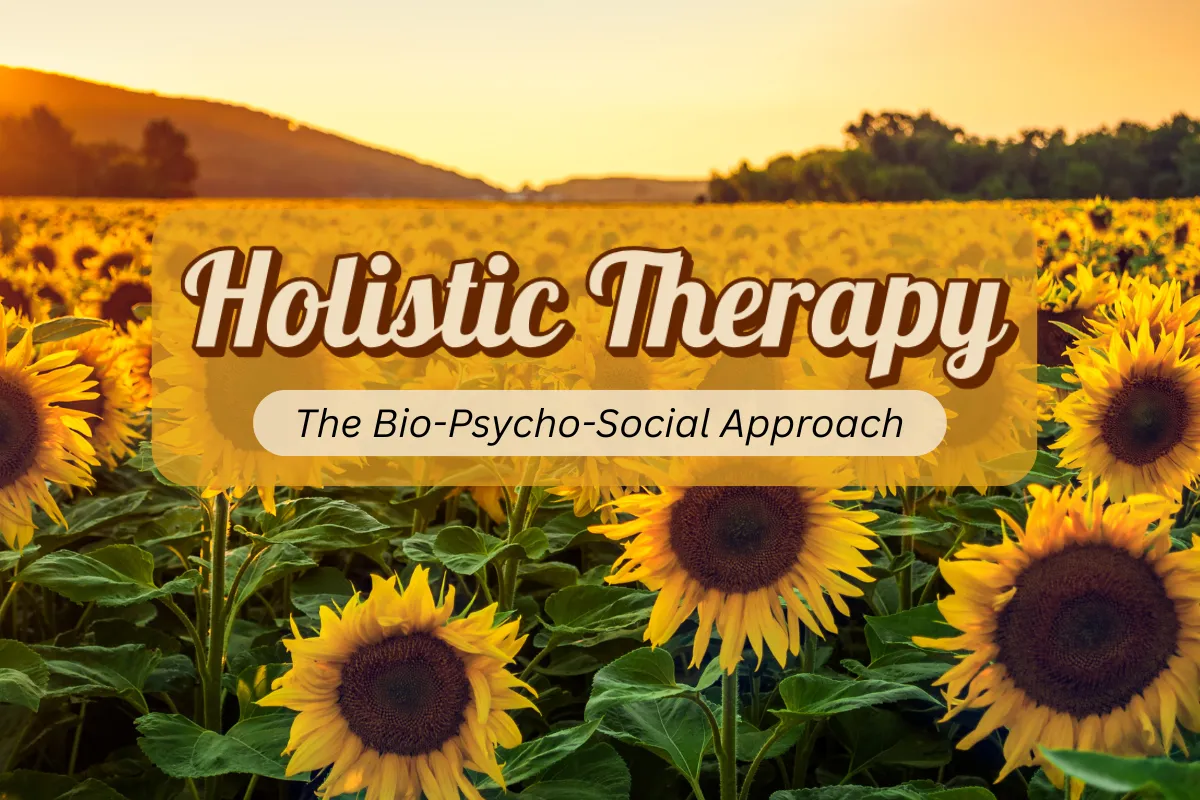
Holistic Therapy - The Biopsychosocial Approach
Holistic Based Therapy for Mental Health Wellbeing
Human “Unwellness” doesn’t occur in a vacuum, but a variety of factors are often at play. Therefore, addressing mental wellness issues requires a “wrap-around” approach to treat and improve one’s health and well-being. In this regard, the most successful approach in both medicine and psychological or counselling interventions is the holistic approach, known as a “biopsychosocial” (BPS) model of human well-being.
What is the Biopsychosocial Approach?
The BPS model of mental health emphasizes that mental well-being is a result of the complex interplay between biological, psychological, and socio-cultural factors, rather than solely biological factors.
This holistic approach recognizes that these three dimensions influence each other and contribute to an individual's overall health and experience of illness.
The Key BPS Components
Biological Factors:
These include genetic predispositions, brain chemistry, neuroendocrine system, and physical health conditions that can affect mental health.
Psychological Factors:
This encompasses an individual's thoughts, emotions, personality, coping mechanisms, and past experiences, all of which play a role in mental health.
Social Factors:
This includes social support systems, cultural background, socioeconomic status, access to resources, and environmental factors that can influence mental health.
How does it differ from the Biomedical Model though?
The BPS model stands in contrast to the biomedical model, which primarily focuses on biological explanations for illness. The biomedical model often overlooks the psychological and social aspects of health and illness. The biopsychosocial model provides a more comprehensive and nuanced understanding of mental health by acknowledging the interconnectedness of various factors.
Implications for Treatment
The BPS model suggests that effective mental health treatment should address all three dimensions. This could involve a combination of medication (biological), therapy (psychological), and community support interventions (socio-cultural). By considering the individual's unique circumstances and the interplay of these factors, healthcare professionals can develop more personalized and effective treatment plans.
In therapy sessions, a BPS trained therapist will explore all these areas, to better understand the client needs to be addressed effectively, and strengths such as cultural unearthed positive aspects that can be built upon for the best improvement of individual wellbeing.
At Sano State Health Clinic, we embrace holistic approach for the betterment of our patient, and we are trained in the BPS model and related approach to help our patients and clients.
We are always happy to help. Get in touch with us HERE or by calling 587-333-6349. 💙
Disclaimer
Our content is for informational and educational purposes and is not a replacement for professional advice, diagnosis, or treatment. If you're facing mental health concerns, please seek help from a qualified professional for personalized guidance. Every individual's situation is unique, so use the information here at your discretion. While we strive for accuracy, the field of psychology is ever-evolving, and our content may not always reflect the latest research. Please prioritize your privacy by avoiding sharing personal information in comments or interactions. Your well-being is our top concern, so use our content for educational purposes, but remember to rely on professionals for your specific needs.
